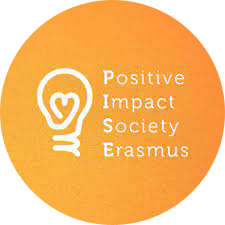Research Project in Cooperation with Lafiya Nigeria
At the end of the last academic year, 4 of our members did research on how to improve the cost-effectiveness of Lafiya Nigeria. Lafiya Nigeria is an NGO that focuses on distributing contraceptives and family planning advice/information in rural Nigeria. This work is done through educating local nurses to provide effective family planning and distributing contraceptives to them. Once they are a part of the program they are official Lafiya Sisters, and get a small monetary compensation based on performance each month. The work the Lafiya sisters do is extremely important as it can mean fewer high-risk unintended pregnancies (due to insufficient health facilities in many areas), and it can lead to increased health in infants and young children due to longer spacing of births. Increasing knowledge of family planning and access to contraceptives can therefore be a very effective way of increasing welfare in rural, low-income areas. Lafiya has already had a large impact in this regard, reaching over 53,000 women in Nigeria and distributing over 85,000 doses of Sayana Press (contraceptives).
Our research team did research on how to improve the cost-effectiveness of Lafiya Nigeria by looking at different factors affecting the productivity and motivation of the Lafiya sisters. This team consisted of Julia Kubiak (project manager), Masza Wawszczyk, Daphne Gibourg, and Trym Braathen, who are all students of different disciplines at Erasmus University. They looked at the research question through the lens of psychology, sociology, and economics. The factors that the team examined included; monetary incentives, sense of community, supervision, and how to improve the rate of women choosing to do self-injections of contraceptives. The group collected data through distributing an online survey to the Lafiya sisters, as well as through 1-on-1 interviews with some of the sisters. The project was done in cooperation with the project initiator, Cassandra Kamberi, and Impact Makers. Impact Makers and Kamberi provided useful knowledge and feedback for the project group. The team also cooperated closely with Céline Kamsteeg, the Co-Executive Director of Lafiya Nigeria, who was very helpful in supporting the research project.
The results of the project were a 39-page research report that provided details on research findings, connected to existing literature. In the report, suggestions were also provided for what actions Lafiya could take, and literature that might be useful to read for the purpose of improving cost-effectiveness. The team also presented their findings to Lafiya's staff after finishing the report. Overall the project was a success, the participants in the research team learned a lot about how to conduct real research, and how to work effectively in a team and they made some interesting findings. Lafiya also ended up implementing some of the team’s recommendations and is currently thriving and expanding.
We currently have similar projects in the works for our Global Health and Development Committees. If you want to know more about the project, or how to have the chance to do something similar, don’t hesitate to get in contact with us! You can also read more about Lafiya Nigeria on their website: https://lafiyanigeria.org/
